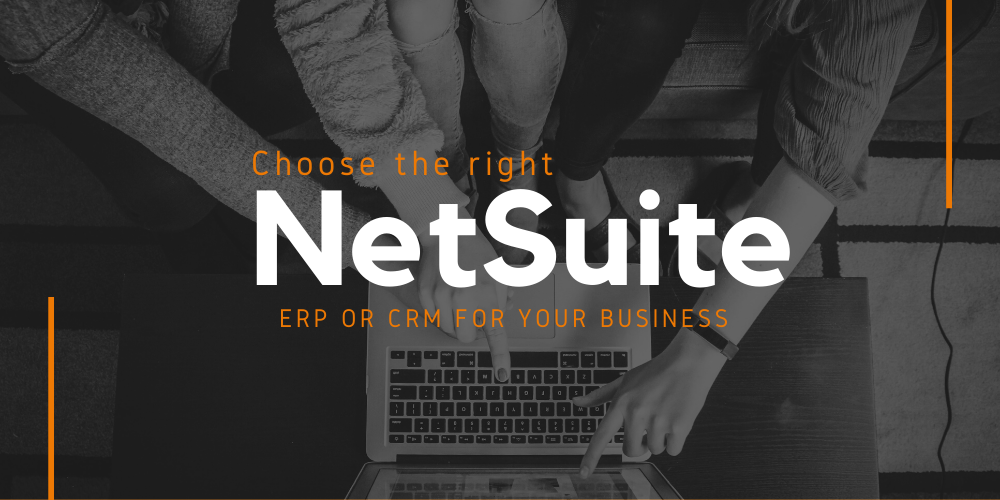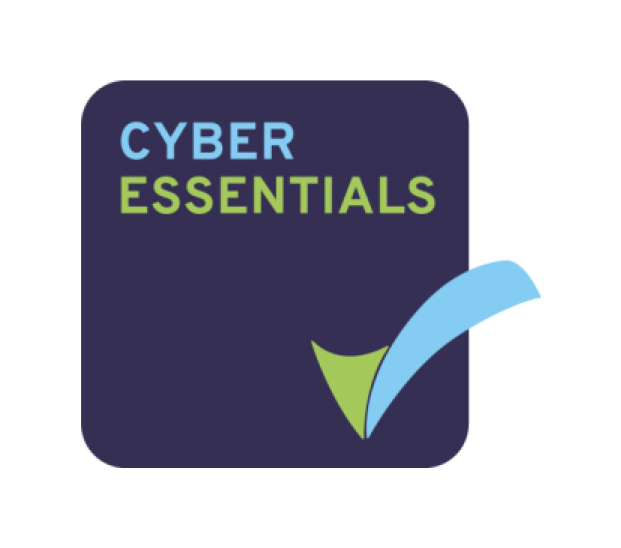Let’s explore what NetSuite ERP and CRM are, demystify cloud computing and help you decide what’s right for your company.
If you are an SME you may have thought about or been advised to get an ERP from NetSuite or another software provider. This probably included a push to take your business into ‘the cloud’.
It can sound a bit scary but, in reality, it’s the best way for a growing company to maintain internal system integrity and have business processes grow with it. Having an in-house server taking up space in your offices and potentially holding your company to ransom if it malfunctions doesn’t have to be your only option. We understand the many positives of working with NetSuite ERP or CRM but you may not.
Here are a few highlights about NetSuite that may interest you:
What is cloud computing?
Cloud computing is when a company uses a network of remote servers hosted on the internet to store, manage, and process data, rather than on a local server or a personal computer.
Many SMEs will have their own servers onsite supporting their systems independently. The difference between that and cloud computing is your server no longer lives on site but you have access to servers that are situated elsewhere and you connect to them via the internet. The big plus with this is if the server you are using has a problem, then you’re seamlessly transferred to another one. No downtime, no interruptions, and no worries.
As your company grows, you just access more server space. No need for an outlay on a larger capacity onsite server. Your business just uses what it needs, when it needs it.
Is the cloud secure for my business?
That’s a sensible question that comes up a lot. Here’s what NetSuite has to say about their security:
We’ve added further reading at the bottom of this post if you would like to read up more about cloud security later.
What is an ERP?
Enterprise resource planning (ERP) is software that your company can use across the whole business rather than having lots of separate unconnected systems. It means that your sales, accounting and HR systems and processes will all speak to each other.
There are a number of different companies offering similar software but this post specifically discusses the CRM and ERP software from NetSuite as they’ve been offering it for the longest. You can read more on that later on in this post.
Before I go on, I want to explain what a few other acronyms mean that hang around this topic. If you are already aware what these terms mean, please feel free to skip over the next few sections.
CRM? What’s that?
Customer Relationship Management (CRM) software helps a company make the most of its interactions with customers. It’s easy to lose sight of what your customers are doing, buying or even saying about your company without bringing all the information together in one place. A CRM helps a business improve relationships, avert problems and retain customers more easily.
What does SaaS mean?
Stands for “Software as a Service.” The idea behind SaaS is that a company doesn’t purchase servers and application software and run them in-house. Instead, they contract with an external company, in this case, NetSuite with its own server farm, software and support staff.
When your company starts using a NetSuite ERP or CRM your team will log in directly to the system via the internet. Which employee can see what part of the system is decided by your business? The setup and maintenance of access are controlled by a NetSuite Administrator.
What is multi-tenancy?
Multi-tenancy means where one version of the software runs on a server and is accessed by multiple tenants.
This is where cloud computing gets really interesting. The software that your company is using is also being accessed by other businesses. Each of the different ‘tenants’ uses the same version of the software but each is securely separated from the other. Another company can never access your information and you’ll never see theirs.
Another great thing is that the NetSuite software you are accessing will always be the latest version. Your business will never need to think about software updates again, it is all looked after for you. Think of cloud computing as renting a fully serviced apartment rather than buying one of your own.
NetSuite was the first ‘cloud’ company
NetSuite, based in California, USA, was the first company to offer business applications to customers over the internet. They started in 1998 and since then have grown to offer services to more than 40,000 companies and organizations in over 100 countries.
In November 2016 the company was acquired by Oracle, this makes the future look very bright for both the company and its customers. There are big plans for continued growth and more pioneering software will be on offer.
What are the different software products NetSuite offer?
Warehouse, dispatch, accounts, HR, marketing, and the sales department probably all have their own separate systems within your company, but moving over to a CRM or ERP from NetSuite will offer the opportunity to pull all those business processes together.
- NetSuite ERP – Financial, Order, Production and Supply Chain Management. Procurement, Warehouse and Fulfilment processes.
- NetSuite CRM – Salesforce and Marketing Automation. Customer Service and Partner Relationship Management.
- Suite Commerce – End to end Business to Customer (B2C) and Business to Business (B2B) eCommerce platform.
- NetSuite OneWorld – This platform is for Global Business Management.
For more in-depth information follow the link at the bottom of this post.
What companies use NetSuite software?
NetSuite has a software option for all sizes of company. If your business is a start-up, SME, Non-profit or a large enterprise, just use the software that is right for the size of your business. Here are some companies that use NetSuite:
- Baker – Small retailer
- Kiva – Non-profit, microfinance loans
- Shaw Industries Manufacturing – World’s largest carpet manufacturer
- TopDown Consulting – Professional services SME
Read about the difference using NetSuite has made to these businesses at the end of this post.
What NetSuite software specialists will you need?
When you transition onto NetSuite software, depending on whether you are moving a small part of your system to a new CRM or migrating your whole business system to the cloud, you’ll need help from various NetSuite specialists.
NetSuite Administrator:
- Look after the running of your NetSuite system.
- Will set up all the custom accounts for your employees ensuring that each role is set up securely.
- Creates and publishes dashboards for groups of users in different areas of your business.
- Imports data into your system.
- Assists and troubleshoots with reports and searches.
- And much more…
NetSuite Consultants
There are a few different types of NetSuite Consultants that can help your company move into the cloud.
- Migration Consultant – Moving your data from old systems to the new one.
- Implementation Consultant – If you are keeping some of your old systems and adding a NetSuite ERP or CRM, they can make sure that the systems all work together.
- Functional Consultant – Gets all the relevant systems functioning correctly.
What if you need to customize your NetSuite dashboard?
NetSuite Developer
A NetSuite Developer could be brought in for a short-term contract to write your business some bespoke software to work with your chosen NetSuite software option.
Where should you go to talk about getting NetSuite ERP, CRM or other software platforms for your business?
To find out if NetSuite has the software that is right for your company, your first visit should be on its website.
They have partners that work with them globally that can offer you a one-to-one service. You will be able to find one that is close to your location.
Now you understand more about the cloud and what a NetSuite ERP and CRM are. Hopefully, you will feel more able to decide if this is the direction your company should be taking.
In the 21st century, your business is judged by the service that it offers from the first visit to your website through to the delivery of the product or final invoice payment. In order to be able to compete successfully in this fast-paced, online environment you need to be able to count on all of your systems to work together not against each other.
Making the move to cloud computing
Making decisions now that will shape your company’s future is never easy, but making the move to the cloud and implementing a CRM or ERP is a great start.



